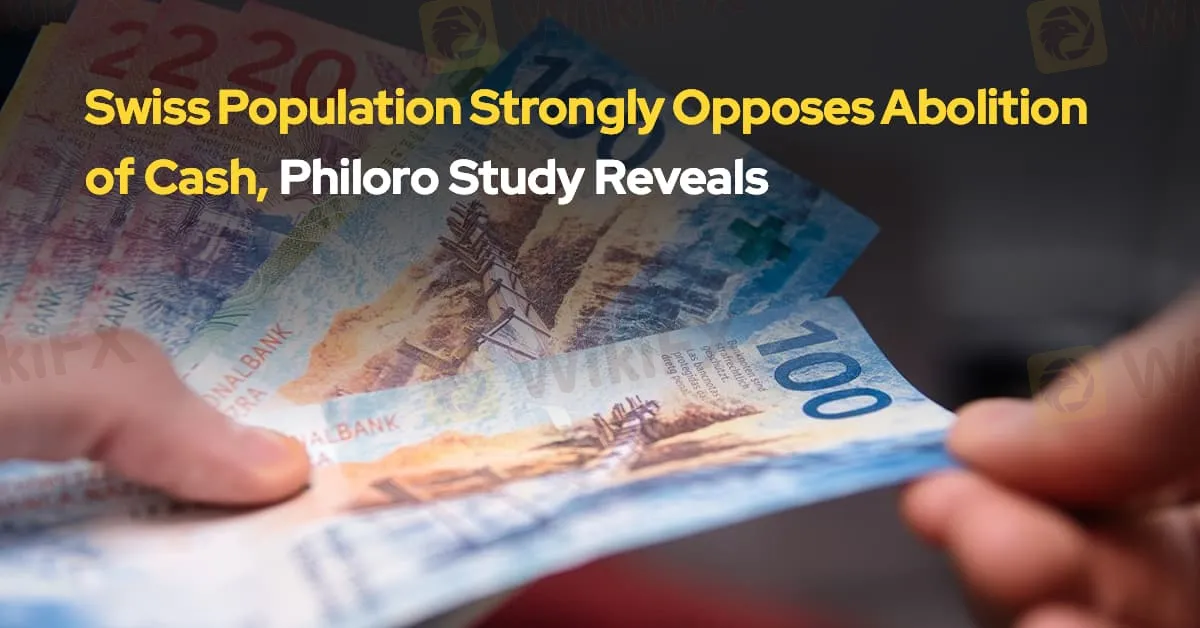Abstract:A new study has revealed that nearly 90 percent of the Swiss population is against the abolition of cash, highlighting a significant rise in opposition compared to the previous year. The Precious Metals Study 2024, conducted by precious metals trader Philoro, shows a marked increase in the number of Swiss citizens who prefer to keep cash in circulation, with a notable shift in public opinion.

A new study has revealed that nearly 90 percent of the Swiss population is against the abolition of cash, highlighting a significant rise in opposition compared to the previous year. The Precious Metals Study 2024, conducted by precious metals trader Philoro, shows a marked increase in the number of Swiss citizens who prefer to keep cash in circulation, with a notable shift in public opinion.
According to the study, 88 percent of respondents are now opposed to eliminating cash, up from 72 percent just one year ago. This growing resistance comes at a time of global economic uncertainty, with Professor Sven Reinecke from the University of St. Gallen (HSG) attributing the increase to the current geopolitical unrest and ongoing inflation. “In times of crisis, people increasingly hoard cash as a store of value,” Reinecke remarked in a statement accompanying the survey results.
Age and Income Influence on Cash Preferences
The study reveals that older Swiss citizens are particularly strong in their opposition to the disappearance of cash. A striking 96.1 percent of people aged 60 and above are against the abolition, showing a slight increase from 90 percent the year before. This generational gap highlights how traditional views on money are more prevalent among older populations.
Among younger groups, the 40 to 49-year-olds saw the most significant shift in opinion. In the previous year, only 60 percent of people in this age group were opposed to the idea of abolishing cash. However, this year, that figure jumped to 87.4 percent, showing that concerns about the future of cash are spreading across a wider demographic.
Additionally, the study highlighted a correlation between income levels and attitudes toward cash. Those with lower incomes appear to have the strongest preference for keeping cash in circulation. A remarkable 90 percent of individuals earning up to CHF 4,000 a month were against the abolition of cash. In contrast, three-quarters of those with incomes over CHF 12,000 were opposed to its removal, but the opposition was less pronounced.
Concerns Over Financial Stability
The study also sheds light on growing anxieties about the financial future. One-third of respondents expressed concerns about a potential financial crisis within the next one to three years, while around 25 percent expected a crisis to occur within the next three to five years. Notably, those with lower incomes were more likely to anticipate an imminent financial downturn. This sense of financial insecurity may further explain the population's desire to retain cash as a safeguard against economic instability.
Survey Methodology
The Philoro Precious Metals Study 2024 was conducted between July and September 2024 and included 1,000 adult participants from German-, French-, and Italian-speaking regions of Switzerland. The survey was managed by the Institute for Marketing and Customer Insight at the University of St. Gallen (HSG), offering a comprehensive look at the attitudes of Swiss citizens toward the future of cash and the role it plays in their lives.
A Wider Trend in Financial Security
The increasing rejection of a cashless society reflects broader global concerns about financial autonomy and privacy, especially amid ongoing economic uncertainty. The survey results suggest that, for many Swiss, cash represents not only a means of payment but also a form of financial security and personal freedom.
As the debate over the future of cash continues to unfold, the Philoro Precious Metals Study 2024 underscores the strong resistance among the Swiss population to giving up physical money, with growing concerns over economic instability and a desire for financial independence. This resistance could signal a broader trend in Europe and beyond, as citizens increasingly demand the right to manage their finances on their terms.










